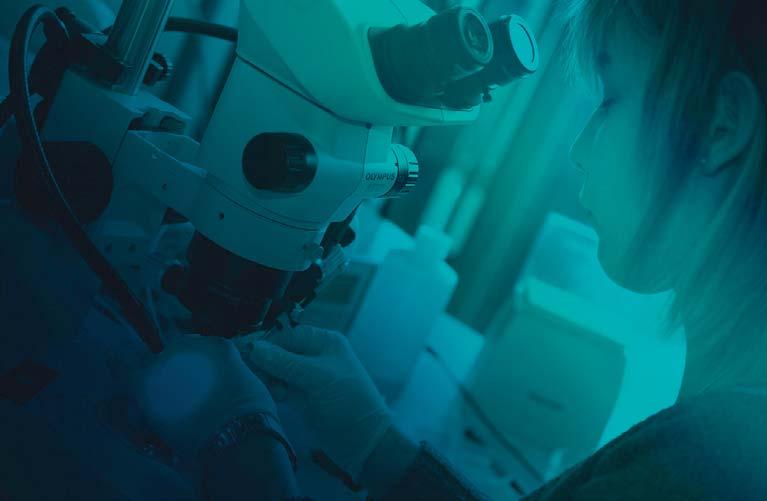The Institute Jules Bordet, a comprehensive cancer center with a research program devoted to solid tumors and hematological malignancies Interview with Prof. Martine PICCART, Research Director of the Institute Jules Bordet on a PET-scan of tumor sites likely to be reached by the antibody-drug conjugate. The resulting “map” can reveal significant heterogeneity between metastases as far as uptake of the labelled antibody which has been shown to compromise the chances of success of the new molecule in up to 1/3 of patients.
W
hat are the key figures in relation with breast cancer (BC) research at Institut Jules Bordet (IJB)? The IJB is a comprehensive cancer center with a research program across a wide variety of solid tumors and hematological malignancies. Breast Cancer (BC) represents its most dynamic field of research with one laboratory fully dedicated to a better understanding of BC biology, a team of research nurses and data managers in charge of many national/international clinical BC trials, and a Clinical Trials Supporting Unit (CTSU) able to initiate, conduct and analyze clinical trials centered on patients’ critical needs. Close to half of the CTSU clinical trials (18/33) are BC trials, and CTSU has been the “data center” for some of the BIG famous pivotal adjuvant trials. In addition, the IJB welcomes each year 3 to 4 oncologists from different regions of the world, who spend 2-3 years at IJB conducting clinical and translational research in BC.
© Jules Bordet Institute
IJB oncologists have designed the BIG “AURORA program” and included more than 177 Belgian patients (close to 1/5 of all included patients so far!). This ambitious program, supported by the Breast Cancer Research Fundation in the US, relies on the most advanced technologies to dissect the molecular evolution of metastatic BC with the hope to better understand and counteract its lethal evolution. IJB also wants to contribute to research aimed at rendering BC more “immunogenic”: pre-operative trials allow for the exploration of stereotactic radiotherapy on the primary tumor in combination with new drugs able to activate the immune system… and their results are obtained within 6-9 months since the therapy will make an impact that can be measured at the time of surgery. Such a preoperative trial, designed by IJB and ongoing in Belgium/France (NEOCHECKRAY), focusses on the most aggressive hormone receptor positive breast tumors which are characterized by late relapses in spite of initial treatment with surgery/ postoperative radiotherapy, chemotherapy and hormonal therapy. It explores, in combination with standard preoperative chemotherapy, 3 immune-enhancing strategies: stereotactic radiotherapy alone or given with an immune checkpoint inhibitor (ICI), a drug that relieves the brake exerted by tumor cells on immune cells, or with the combination of this ICI and a new compound able to reduce anti-immune signals in the tumor microenvironment.
© Jules Bordet Institute
What is the current BC research agenda at IJB? Like many other cancer centers/departments IJB contributes to pharmaceutical industry trials which investigate new promising anticancer drugs. Among those, antibody-drug conjugates generate much excitement at IJB: they link a potent cytotoxic agent to an antibody able to direct this “poison” to the tumor cells and to spare healthy cells to a great extent (since they do not recognize the antibody). These “Troye horses” have already generated impressive results in HER2 positive and triple negative BC. Efforts at understanding better which patients might derive the greatest benefits from these compounds are ongoing thanks to a close collaboration between the departments of medical oncology and nuclear medicine: indeed the antibody, labelled with an isotope, can be injected into the patient, allowing visualization
Prof. Piccart with the CTSU team (former BREAST)
83
What are according to you the main future challenges in BC research? Beyond the challenge of making this tumor detectable by the immune system, other challenges include the development and implementation of improved personalized screening approaches (see the EU supported research program “my PEBS” for “My Personal Breast Screening” with 85.000 European volunteers), an improved understanding of mechanisms of “resistance” to our current anticancer therapies, as well as of “tumor dormancy”, the robust development and validation of “biomarkers” that improve treatment tailoring and the financial means to devote more attention to survivorship issues.

















































































































